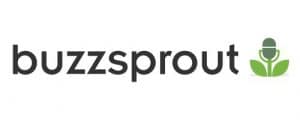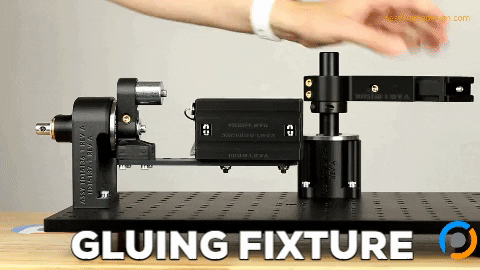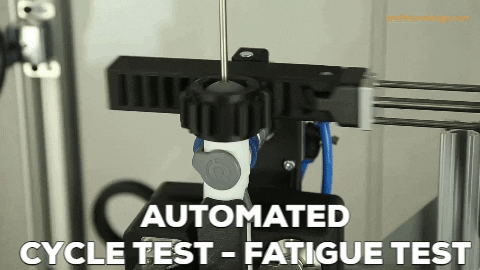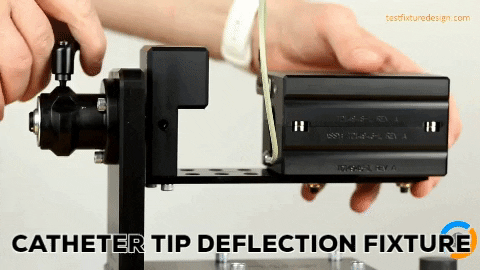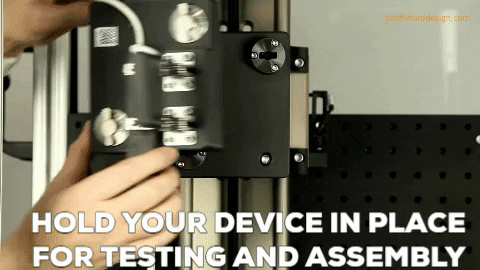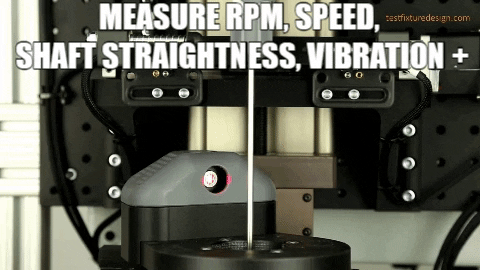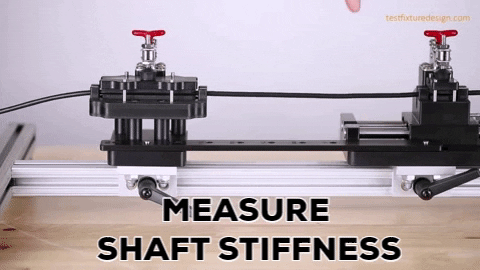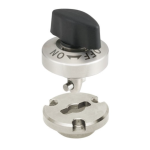S4E33 Assistant Dean Michael De Gregorio | Accident Reconstruction, Perseverance, & Doing vs Learning About Doing

Who is Michael de Gregorio?
Michael de Gregorio holds bachelor’s and master’s degrees, as well as a PhD, in mechanical engineering. His background includes biomechanical research on the human hand, understanding injury modes due to IED explosions & automobile accidents, and currently serves as the Assistant Dean of Engineering at Grand Canyon University.
EXPAND TO VIEW EPISODE TRANSCRIPTION
SUMMARY KEYWORDS
engineering, students, industry, bit, work, engineer, gcu, day, change, grand canyon university, great, lecture, problem, learning, university, assistant dean, class, teaching, professor, put
SPEAKERS
Michael de Gregorio, Aaron Moncur, Presenter
Presenter 00:00
Hi, everyone, we’ve set up this being an engineer podcast as an industry knowledge repository, if you will, we hope it’ll be a tool where engineers can learn about and connect with other companies, technologies, people, resources and opportunities. So make some connections and enjoy the show.
Michael de Gregorio 00:19
Right now we’re in a really, I think it’s a real tipping point in education for engineering, especially because we have all of these great tools that people are happy using. And if we can kind of push some of these things and lean into what Gen Z really wants and the modalities that they like, I think we can really boost the amount of learning that goes on.
Aaron Moncur 00:57
Hello, and welcome to another episode of The being an engineer podcast. We’re speaking today with Assistant Dean Michael De Gregorio who holds bachelor’s and master’s degrees as well as a PhD in mechanical engineering. His background includes biomechanical research on the human hand, understanding injury modes due to IED explosions and automobile accidents, and currently serves as the Assistant Dean of Engineering at Grand Canyon University. Michael, thank you so much for being with us today.
Michael de Gregorio 01:29
My pleasure. Thanks for having me. All right.
Aaron Moncur 01:32
So what made you decide to become an engineer,
Michael de Gregorio 01:35
man? So the origin story, I guess, this is gonna date me a little bit. But when I was a kid, I really loved this TV show. MacGyver. MacGyver. Yeah, right. And I’m pretty sure that is the origin of why I wanted to be an engineer, right. So if anybody’s listening and doesn’t know MacGyver is a guy who would get himself into these espionage situations, and then get himself out by designing things with what he had at hand. Right? That and I was listening to one of your earlier shows, and I had a lot of resonance with the answer that I think that you gave him about why you became an engineer where you were sitting at your dinner table and your dad’s like, Hey, how about engineering? Pretty much the same thing. My, my guidance counselor in high school is like, Hey, you’re good at math and science. Why don’t you try engineering? And I did, and I really enjoyed it. And so awesome comes out when kindred spirit here, that’s great. I love that you
Aaron Moncur 02:40
brought up MacGyver. So for all of you listeners out there, if you don’t know who MacGyver is, first of all, shame on you. And second of all, go out and find some old episodes of MacGyver. I think they’re on on Netflix, or maybe it’s Hulu or something like that. I know, I found that recently on one of those streaming apps. I’m pretty sure it’s Netflix. I’m pretty sure. Phenomenal series. Yeah. Okay. Well, you’re you’re working in academia now. But you did spend some time in industry before moving to Grand Canyon University. One of the places that you worked was called Bio wreck where you reconstructed automotive accidents and determined injury potential. Can you just walk us through that process? You know, what, what were some of the tools that you use? And how were your results used? Who are your customers? That kind of thing?
Michael de Gregorio 03:29
So accident reconstruction and injury analysis is very interesting field, right? Because you need to essentially figure out this puzzle in reverse order, right? Like you have the outcome, and you need to figure out how all the pieces made, made the puzzle, right? So it’s, it’s interesting in that way, without giving away too much of the special sauce of what biotech does, because I’m sure that, you know, Joe pelisse would be really upset if every all of his competitors got that, right. But what it really boils down to for for accident reconstruction is first, you need to do research on the vehicle. Right? And so you go to some of these guidebooks and you, you piece through okay, these are the pieces that the the, the accident report said were broken, you have insurance estimates. And the reason that you’re doing that is in the case that you can’t actually look at the vehicles that were in an accident, you need to be able to go out and find one that is comparable to what was in the accident. So you have some frame of reference for how this vehicle was, was deformed right in the accident. The next thing you do is and this gets into the tools, it’s really at its base, just momentum, energy and restitution calculations. So it’s your unit versus the physics class, right. Or if you’re a mechanical engineer, it’s dynamics, right? And it’s, you have a collision that has occurred. And you want to determine how much energy caused that amount of damage. And so, you know, if you have a high restitution collision, something that’s close to one, right? What that means is that the two things hit each other and bounced away, right, with minimal damage. That can’t be one, because there’s sound energy or thermal energy that gets exchange from that collision. But it’s pretty high, and they bounce apart, right. So those are things like low speed collisions, right, and higher speed collisions, you get restitutions that are close to zero, which essentially means that the thing never bounced back to its original shape, it just deformed. And the best example I can give you is if you watch a low speed, or high speed camera, somebody kicking a football or soccer ball, you’ll see that the ball deforms, right, and then it springs back. Right. And that springing back is the period of restitution. So you use those, you understand that from the accident scene. From the accident scene, pictures that you have, you know that there’s a certain amount of deformation on the car, right, you then work your calculations backwards to figure out how much energy it took to deform it that way. Because that informs how much speed you had, right? Cuz you bring it back to kinetic energy at the end of the day. And once you have all of that, then you start diving into pre existing Injury Research. Because there are a lot of research groups out there who focus specifically on determining what sorts of injuries are possible for what they call the delta V, or the change in velocity. It’s kind of like the acceleration except that we’re not worried about it, how long, the period of time that change in velocity happened over, you assume that the collision is fairly short. In any case, right. And so you really quantify it with the change in the velocity. And so based on what your ranges of Delta VR, you can make an assessment as to whether or not somebody could have hurt their neck or their arm or their legs in the way that they have.
Aaron Moncur 07:25
So once you have that information, you’re kind of tying it back to some kind of biomechanical index that tells you, you know, this sort of impact can result in this degree of injury, etc.
Michael de Gregorio 07:36
Exactly. Yes. Got it. Okay. And then in terms of customers, it’s, it’s lawyers, lawyers want you to do this work, right. Why? Because peep, somebody’s getting sued somewhere about something. And so it is a very litigious business, because, you know, it works within the legal system.
Aaron Moncur 07:57
That’s super interesting. I don’t think I’ve ever heard kind of the background of the process, you know, of identifying injury potentials. I’m just going to ask a, what’s the word I’m looking for? Can’t think of the word anyway? Did you like it? Was that fun for you?
Michael de Gregorio 08:19
For me? Not really. And I’ll be honest, I don’t think I think at that time in my life, my kids were wanting to, and we had just moved back here from North Carolina. And I don’t think I was giving the work. All the attention that I could have, because of where I was, personally at the time. It’s interesting work. I still look back on it, and I enjoyed it. But I do think that long term, I don’t think it would have been for me, personally. Yeah, the legalism of it and you don’t get to choose right all the time. If you get to be on plaintiff or defendant side, you just kind of get handed a case and you’re like, Yo, you gotta go with it. So
Aaron Moncur 09:09
interesting. All right. Well, you’re at Grand Canyon University now and you’ve held a few different roles there from program lead to chair to analysis and Dean of Engineering. What What are your day to day activities like there? Okay.
Michael de Gregorio 09:23
So as program lead or chair, that was still a faculty position, right? So the day to day for that would be teach your classes, interact with students, have your office hours, but then on top of those responsibilities, make program decisions, help influence curriculum and things like that. With assistant dean, it’s much more of a daily operations role. And so I like to think of it as I am here to serve the faculty so that they can then serve the students So I try to make sure that everybody has the things that they need, so that they can do their job
Aaron Moncur 10:06
almost sounds like, like a project manager role.
Michael de Gregorio 10:10
In a sense, it is right, because I take care of scheduling, with help from our program director as well, we kind of we handled student side issues as well. And so really anything that guides the curriculum, anything that helps faculty do their job, or anything that helps to get students through the program is where I kind of spend my day.
Aaron Moncur 10:33
Nice. And what what was it that made you pursue, at least for now a career in academia, as opposed to staying in industry,
Michael de Gregorio 10:43
I always felt that I would end up back in academia, at some point, I’ll be it, I do think that this is a little bit sooner than I would have envisioned it when I got out of college, right? Um, my I remember back in my undergrad, every single one of my professors had a P. And they all did consulting in the summertime, right? Like that was that was their cycle. And I think that that really helped inform their teaching, right? Because now we’re learning things. And we have context in the real world. Hey, don’t do it this way. Do it that way, because this is how your boss is going to ask you to do this, right? Or, Hey, you don’t I know, somebody told you that differential equations are an important, right. But guess what differential equations are everywhere, and you’re not going to escape them. So you’re going to need to figure that out, right. And so I always wanted to have that industry experience so that I could transfer some of that, more hands on and applicable knowledge to students. Right. And again, the ideal plan, I would have been a little bit older before coming back to academia. But I do think it was always something that I wanted to do.
Aaron Moncur 12:01
Yeah, yeah. There are probably some people listening to this right now who maybe are considering a similar route, right, going into academia versus industry, or maybe they’re in industry now. And they’re interested in going into academia, what what should they consider before making that kind of decision?
Michael de Gregorio 12:18
So I will say, I tell students this all the time, this is one of the only jobs that if I don’t show up to the classroom, my clients all are really excited. Right? So I think that the pace is really the answer, right? Um, in industry, everything moves pretty quickly. But by comparison, in the academic world to affect change, you need to be a little bit more patient and work at a little bit of a slower pace, things tend to move a little bit. I’d say glacially here, right. It’s at. And I think that that’s probably the biggest difference that I’ve noticed, I think, especially with the faculty that we have, we have so many people who have a lot of really great industry background, and are just, they’ve they, you know, have some people who had 3020 to 30 years in industry, and then came back to teach and they are, you know, they are a wealth of information, and the students love them. And they have all of this, this knowledge to give, right? And it’s, but they get frustrated, because you can’t just make a change on a dime, and, and, you know, be going in a different direction. There’s all these processes and these, these red tapes that you need to kind of go through to get to really affect change in an appropriate way here. Yeah.
Aaron Moncur 13:45
You mentioned the the glacial pace, and that’s not specific to to the university where you are. That’s I think that’s probably true, kind of across the board and most universities, do you think that’s appropriate? Is that how it should be? Or is that an opportunity for change?
Michael de Gregorio 14:00
I think it’s an opportunity for change. And I think that if you look at how universities are starting to do things, they are starting to try to treat it more like a business. And I think it’s important to understand the future of where higher education is going to go. And I think that COVID kind of showed us that a little bit, right. Being able to do certain things remotely, for instance, is a huge asset, right? If you can do some teaching remotely or if you can effectively teach a class via zoom or online, that increases the amount of reach that you have right increases the amount of people who can can take that class, maybe they wouldn’t have been able to before. But yeah, I think overall, it’s a really big opportunity for people at higher education to kind of sit down and say A just because a thing is worked for years, are we doing this? Because it’s tradition? Are we doing this because it’s the best way to do it? Right. And those are a lot of the conversations that we are having here right now. Um, you know, it’s, you know, adapt or, you know, they say publish or perish, but really, it’s, it’s the same in industry, it’s adapt or perish, right? You need to be the, you need to be moving in the right direction, otherwise, you’re gonna be left behind.
Aaron Moncur 15:27
Yeah, that’s a really powerful way to think about it. How about the the the educational aspect of what you do? Has that changed much since since you were a student? Or is the way in which engineering is taught? Do you feel like that’s changed much over time,
Michael de Gregorio 15:47
I think we are doing a really good job of doing it differently here at GCU. I can’t speak for other institutions, although I do think, you know, just full disclosure, we only do undergraduate engineering for the time being right. And so we don’t have any Masters or PhD students. Because I do think you get that in those grad programs is where you get that more hands on that more. Let’s say applications based but you get more of this, this community, right. Whereas at a larger university, it’s sometimes easier to get lost in the crowd in these big lecture sections, right? What we’re doing is we have a common first two year core, right? That all engineering majors take regardless. And so for the first two years, you don’t have to decide what your major is you just can be an engineer, and figure out what you like, right. And then after those two years, you start to specialize. And in your junior and senior year, your class sizes get smaller. And so we see we have larger sections for the first few years, right? 72 ish, at max. And then you end up in these classes that are lecture and lab combined. Right? And so you meet for five hours a week, but the cadence of it is, the professor will lecture for, you know, 1015 minutes on a topic. And then you’re off, you’re, you’re either doing problems, you’re doing an activity that highlights what your what that lecture portion was about. And then you’re back into the lecture. And so it’s more multimodal, right? Back when I went to undergrad, it was that it was, you know, what, 50 minutes of lecture, and then you got to lab once a week, if you were, if you were in a lab class, otherwise, you just sat there and took notes feverishly, right, and then hope that you got everything down that you needed. A lot of our faculty are, you know, and I’m sure there’s other people posting slides, right. When I was teaching, I used to record all my lectures on YouTube, that I have YouTube playlists that the students can go back and watch. You know, we have people that run discord servers so that they’re more readily available for students. It’s right now we’re in a really, I think it’s a real tipping point in education for engineering, especially, because we have all of these great tools that people are half using, right? And if we can kind of push some of these things and lean into what Gen Z really wants and the modalities that they like, I think we can really boost the amount of learning that goes on.
Aaron Moncur 18:35
That’s a cool way to think about it. We’ve got these technologies that are being half used, and what can we accomplish if they’re are fully used? Yeah, well, let’s say that I’m in high school right now. I’m, I don’t know, a sophomore, maybe a junior, something like that. And I’m thinking about the future, right, which we already know is false. Because kids in high school don’t think about the future at least I didn’t when I was in high school. That’s probably change. I think kids are like, way more advanced now than I was back then. But what what should I be thinking about? If I want to go to a university and major in engineering? What are some ways that I should be preparing myself?
Michael de Gregorio 19:12
I like I think it’s it’s funny, because I do tell I taught our freshmen, our Freshman Experience class one time and I told them right off the bat, I don’t know who your teacher was that told you you never need algebra ever again. But that person was a liar, and they lived right to your face. And I would say focus on the fundamentals. My biggest advice that I give anybody is, um, you know, hard work always Trump’s talent, when talent doesn’t work hard. Right. And so, you know, you look at if you look at anybody, if you are willing to put in the hours, then you can accomplish whatever it is that you need to accomplish. Engineering is a thing that any Have you guys gone through it I will tell you is not an easy major to pick, right? It’s very time intensive. But keys for success, I think are the same as a lot of other things, right? You need to put in the time you need to manage your time, right? And so really think about, what are the things that are important to you? And how do you prioritize your life so that you can, you know, not only go to work, but also do your schoolwork, and pass your classes, right? And have a social life? Because I’m not going to tell you to, you know, go and sit and not because that’s part of the college experience, too, is making friends and, you know, self care, and all those things that are really important. Yeah. Go.
Aaron Moncur 20:50
I love that you brought up. I can’t remember exactly how you phrased it now, but we have a plaque here at pipeline that says perseverance beats brilliance. And, you know, said basically the same thing and some different words. But I think that’s true. 99 times out of 100, that the person who’s tenacious and just keeps beating their head against the problem is the one that figures it out more often than the brilliant person who maybe, you know, tries for a little while, but then I’m tired of this problem. I’ll move on to something else.
Michael de Gregorio 21:18
Well, and I think part of it too, is, you know, if you go and elegant solution is great. But think back to the first time you ever wrote a computer code, that that thing look nice.
Aaron Moncur 21:30
Oh, that’s a that’s a scary thought. Not just because my coding was, was poor back then. And good. Now it’s non existent now. And it was horrible back then. So that’s a scary thought for me taking down a dark hole here.
Michael de Gregorio 21:43
But with practice, right, you start you look at those, you look at those things that you used to do it, even in your youth, and you’re like, I can’t believe I was so naive. And I did that. Right. Like, it’s the learning. I think the other piece of advice I have, right is that often learning is painful, right? Growth is painful. There is a reason why your teeth don’t all just pop into your head immediately is because that has to hurt when they’re breaking through your gums, right? Like, and there’s a reason why it happens when you’re a baby. Because then you can’t remember the same rules with with learning, though, right? With growth, anytime you grew up, you’re going to feel a little bit uncomfortable. When you’re pushing your envelope when you’re pushing your mind, right? It’s, it’s not about being in your comfort zone, it’s about being out of your comfort zone and trying something. So really, you know, don’t expect to be 100% The first time you try anything, right? I use this example a lot is, when I was working at Wake Forest, I used to sit down the hall from where the med students would hang out because my office was right there. And once a year, the first year med students would would sit there in the fall semester and a bunch of women would be crying, right. And I found out it’s because it was the first exam that they took was that day, and many of them are such high achievers, that they never got lower than an A. And they thought that their life was over because they got to be. And I am here to tell you that that is not the case. I have gotten plenty of B’s, I’ve gotten plenty of C’s. And
Aaron Moncur 23:28
we really are kindred spirits. So I’m really I’m vibing here. Yeah,
Michael de Gregorio 23:33
you can you can like again, if you want something bad enough, you can make it happen. Right? And you just have to be persistent and, and, you know, work hard. That’s that’s really the skills that you need.
Aaron Moncur 23:48
That’s totally how it was for me. In in school and also in my career. Definitely in school. I was not your naturally gifted academic, it was hard for me and I did not get all A’s for sure. There were there were definitely some C’s in there. But you just keep pushing, right? You just keep doing the best you can and and you make it through and honestly, that’s maybe one of the greatest lessons I learned in school was was not just the technical aspects, but how to keep pushing myself and just get through something really hard, right, do hard things. Yeah, absolutely. All right. Well, let me take a short break here and share with the listeners that Teampipeline.us is where you can learn more about how we help medical device and other product engineering or manufacturing teams develop turnkey equipment, custom fixtures and automated machines to characterize inspect, assembled, manufacture and perform verification testing on your devices. Today we’re speaking with Assistant Dean Michael De Gregorio and Michael, is there anything that you wish students applying to the College of Engineering would understand before before they decide to go the path of engineering, man
Michael de Gregorio 25:05
be be curious. Ask questions. Right? Um, I think there’s a common trend among all engineers that whether you’re electrical, mechanical, biomedical, whatever you happen to be, that you’re, you’re legitimately interested in how something works, right. And whether you so so I guess would be the, the advice would be read, stay, stay curious, always ask those questions. I mean, understand that it’s not meant to be easy. So don’t get discouraged if you know, you’re not, you’re not performing to where you want to be. But also understand that you can get there. If you seek help people are there to help you. Right. And so, use use your resources, use your tutoring centers, use your professors, upperclassmen, whoever, whoever you need to, but
Aaron Moncur 26:04
seek help if you need it. Totally. On that subject, what do you think are some of the most difficult challenges that engineering students are facing these days?
Michael de Gregorio 26:15
Man? That’s that’s a good question. I’d say that overall. I don’t want to bring it back to a class right. But I think a lot of students struggle with with transport, right, fluid mechanics and heat transfer. That seems to be an area where people tend to struggle, they don’t they don’t see the point of it. Fair, but I think the spirit of the question is a little bit broader than that. Right. Um, and so I would say that one of the bigger challenges is right now is is a lack of perseverance, that I’ve noticed. Some people just tend to, I did it wrong and give up. Right. There’s also the opposite of that, which is the over tenacious, and that’s not a bad thing, right? To be tenacious and want to persevere. But it is a bad thing, when you are so convinced that you are right, that you do not want to hear that you are wrong. And I understand that, and I’ve been in those shoes before, but maybe I guess maybe we’re Amina as maybe just some humility.
Aaron Moncur 27:28
Oh, that’s wonderful music to my ears. I have to share a quick story here. I mentioned a plaque that we have hanging on the wall right? It says persistence beads brilliance? Well, we have who have how many? Nine, I think nine of these plaques that are up there. I call them pipelines, tenets, right, just some some principles that that we should live by here at Pipeline, another one of them. It talks about the absolute certainty principle. And this is this is an Aaron original here, the absolute certainty principle, this is when you are so convinced that you’re right, that it becomes to the exclusion of any other possibilities out there. And I’ll share a quick example to try and illustrate this further. Because I think it’s a really, really important point, you mentioned humility, right? That’s a critical aspect of this. So we have a pool in our backyard. And we were starting to get some algae in this pool. And I was pulling my hair out because I could not get the algae under control. You know, put the shock in the chlorine and, and I just couldn’t get it. And so I hired a company to come out and take care of this algae. And so they come out and they say, Okay, we figured out the problem. You have too many phosphates in your pool. And they say, well, we’ll just do this phosphate remover treatment, and that’ll fix it. And I said, Okay, that’s great. Are you sure that’s the problem? Is there are there any other possibilities that could be causing this algae? And they said, No, we are absolutely certain that its phosphate levels are too high. And that’s that’s it? That’s it and we’re done. Can’t be anything else. I say, Okay, fine. Great. Let’s go ahead and do this. So they do the the phosphate remover treatment. Guess what, several days later, the algae is still there has not reduced at all. In fact, it probably even got a little bit worse. So I call him back as a hey, I know you’re absolutely certain that the problem was phosphates, but we did this treatment and it has not helped at all. So what do we do now? And they kind of scratch their heads and this oil will we’ll send out a senior technician to take a look. And so someone else came out and turns out there was a different problem where it was like free chlorines levels had risen to a point where they just the chlorine wasn’t effective anymore. They had to drain the entire pool that ended up being the solution. But it illustrates the point that we especially when we’re experts in something right. We become blind to other possibilities outside of what we are so convinced is is the right answer. So anyway, the absolute certainty principle, are you falling victim to a cheater? I’ll get off my soapbox now.
Michael de Gregorio 30:07
I have a I have a colleague who she, she will look at students and say, Oh, really that’s what you think, in all of your years of experience.
Aaron Moncur 30:23
Okay, I had a professor who it was a little bit different, but it was super funny, soft to share this real quick, inevitably, someone would raise their hand and say, Professor, I have a dumb question. And the professor would say, he was waiting for this, right? Because it happened every semester, inevitably, some student resident, I have a dumb question, professor. And then he goes on to ask the question. Well, he’d interrupt him and say, no, no, no, there are no dumb questions. Only dumb people. Now, what’s your what’s your question? The whole class was, I mean, he was good natured about it. He wasn’t really trying to pick out anyone, but it was a funny response. All right, well, let’s see, let’s keep going here. Beyond just the technical aspects of an education in engineering at university, what’s one thing that if the students learned this lesson, before graduation, this one thing, you’ll feel like the the university has done their job when it comes to educating the students?
Michael de Gregorio 31:20
Don’t put your numbers in before you’re ready to do your calculation.
Aaron Moncur 31:25
Ooh, tell me more about that.
Michael de Gregorio 31:28
So I used to teach a dynamic systems class, which is just essentially its mathematical modeling, right? So here’s a system give me the mathematical model for it. Because the follow on to that is control systems, right? And so you have this nice plant model, and now it’s in the black box, and then you put your input and your output in right, okay, great. But if you put your numbers in at the beginning, and then I tell you will actually know your spring mass damper, it turns out that I can’t get that spring that you need. And I can only get this spring, so you need to redo the whole calculation. Now, you have to start all the way at the beginning. Right, because you put the numbers in first. But really, I would say, understanding that there are typically multiple, correct answers to thanks. Right? And just think about, think about a problem, you know, you could come up with multiple solutions. And the thing that could make one more correct than another is maybe a factor that the user wants, like your customer asks you for something specifically, right? Or maybe it’s some human factor that you didn’t even consider in the beginning, and then you did some testing, right? Be comfortable with the fact that nothing? There’s no one I know, the textbooks tell you there’s one correct answer. But there’s often more than one correct answer. And so being able, I guess, to solve open ended problems that require you to think a little bit and make an engineering judgment about a quantity or, or a reaction to something.
Aaron Moncur 33:15
Those are two great answers. I really like how tactical that first one was, because that that like gets into some nitty gritty details about problem solving, with equations anyway. And I was totally that guy, freshman year of college, putting in the numbers way too early. And I had a friend who was brilliant. And he would he would tutor me some times. And every time I did that, he’d slap my hands it Stop it. Stop doing that not we’re not ready for that step. I eventually did learn that lesson. All right. How do you think industry and universities are working well, and in? How can we improve the way that we work together?
Michael de Gregorio 33:59
So I think it’s a little different with how GCU interfaces with industry then a bigger school, like an ASU. So ASU is a tier one research institution, right? And so they were pulling in a lot of grants, they have some industry partnerships to do some r&d stuff, right? Whereas at GCU, we don’t really have very much research we are mainly strictly speaking a and an educational or a teaching university, right. And so the way that we and I’m pretty sure other universities do this as well, but our biggest means of interacting with industry is through our industry advisory boards. And so whenever we make a curricular change or a programmatic change, or we’re proposing a new program or whatever it happens to be we run it passed a set of industry advisors first, and they’re all local to the Phoenix area. Right? And, you know, we pick their brains and we meet with them twice. See, and I think that this is this has been a great partnership for us because we have the ability to not only say, Hey, are we giving our students what they need to be successful? Like, do you want to? Do you even want to hire our students right now? Like, what? What is going to get our students into your worthless? That’s the real question. Right? At the end of the day, we, you know, it anybody at a university level is really in workforce development, right, regardless of what discipline you’re teaching in, or what college you’re part of. And what I need to know, to be competitive is, what skills do you as an industry representative need my students to have on day one, when they walk into that door? Because if they don’t have them, we need to make sure they have them? Right. That’s, that’s the bottom line. And so that’s those are the types of questions we asked. And I think that, you know, if I might toot my own horn a little bit, you know, I didn’t build the program from the ground up. But I think that those who came before me did an excellent job of listening to that advice. And I think that our students do have a lot of skills that make them make their learning curve a little bit shallower, when they when they come in.
Aaron Moncur 36:19
So it’s wonderful. Awesome. I like to say that doing is better than learning about doing it sounds like your team there is has instituted a lot of doing which is excellent. Well, what is what’s one of your proudest moments as an educator,
Michael de Gregorio 36:36
man? Well, I’ll say for me, in 20, I guess last year is 2022. I was nominated for an engineering unleased, unleashed to fellowship, and I want it and so I got $10,000, to do educational research, essentially, this foundation, the Keene foundation, it’s really the current Family Foundation. But Keene is the engineering branch of it. They funded these workshops throughout the year, and I went to this one for something called problem solving studio. And essentially what it is, is it’s it’s a pedagogy for teaching students that is really helpful when you teach in the style, where at least it fit well with my teaching saw, which was that few minutes of lecture now do a thing, but it’s how do we bring more open ended problems into the classroom? And so for that dynamic systems class I told you about earlier, what I did was I brought in a bunch of card shufflers, like really cheapo electronic card shufflers, from Amazon, right? They came with really nice cards, everybody was really impressed. They’re like gold plated cards. But I was like, Okay, well, you know, in the real world, no one’s gonna give you the circuit diagram for these motors, and no one’s going to, you know, give you a systems diagram. Here’s a card shuffler, I need you guys to not only create the system diagram for this, but also write the, you know, system of equations that governs this system, right in the highest rate, I let them get as crazy as this, these things have little tiny gear traits on them to write for the, for the card flipper, right? And, and they’re like, Well, do we need to, like it’s up to you, you can model the gear train if you want. And some of them who are clever realized, you know, all I have to do is measure the first and the last one. And it’s, you know, that’s, that’s really all I need. But, you know, some people got really into it, and really in depth. Some of them were trying to model the like, try to figure out what the actual impedance of the motor was right? So that they could make their RL circuits really, like nice looking at, it was great. And then we have them take those, those system models, right and put them into a program called sim scape, which is an add on to simulate go, which makes a visual model of and then you can give it an input. And so I said, Okay, now I want you to alter these parameters, so that the output is the velocity of the motor, right? The angular velocity. And I just want you to play around with it and see how changing the different things affects the outcome. Right? And so and just kind of tune it until you get something that looks reasonable to you. Right? Because you kind of want that nice, steady state curve for that motor velocity, right? Because that’s how it works. But it was a really great, I, you know, I surveyed them afterwards with a Survey Monkey, and they were all like, everybody really loved it, right? Because it finally put into context. You know, okay, this is why this might be useful. And I’m not foolish enough to think that every class that you’ll ever take, you’re going to use everything from right but again, it goes back to if I could just see Do you how to solve a problem? The rest of it is, you’ll be fine. Right? It’s really at the end of the day, what you get paid for as an engineer is to look for new and interesting solutions to problems that sips what it is.
Aaron Moncur 40:15
Now, I tell people that engineers are professional problem solvers. So within that context of being an engineer, what is one thing that frustrates you? And also one thing, one thing that brings you some joy
Michael de Gregorio 40:31
into the joy one first? I really love solving problems, right? Like, getting a solution to something just really, is the, it’s the drug, right? It’s the reason you get that dopamine hit, and you keep coming back for it. I remember when I was younger, my cousin was like, you know, that feeling you get when you solve a math problem? Like, yeah, he’s like, yeah, go by. Okay. Sorry. Something that really frustrates me though, is, um, and I mean, that’s, that’s a, that’s a tough one. I, I try to brush them off as soon as I get on Bo. But I would say that from an engineering point of view, what I bring us back to my first job, right, right out of college, I was working for Picatinny Arsenal, which I was a civilian member of, essentially, the DoD right. And so we would do weapons is on it. And when you work for the government, there’s really no design work that you actually do, which was not told to me when I signed up. I designed a lot of PowerPoints. Oh, no. And so that that gets really frustrated. Like, the paperwork. Right. The paperwork is super frustrating, and, and the administrative side of things, which is funny, because now I’ve put myself in this role where I basically just do all of the frustrating things, right.
Aaron Moncur 42:14
Well, on that note, I think, well, we’ll wrap things up here. Michael, thank you so much for spending some time with me today. How can people get in touch with you?
Michael de Gregorio 42:25
You can find me on LinkedIn, for sure. Michael De Gregorio. Should should be right up there. I’m on Twitter, too. I don’t really do anything on there, but it exists. Dr. DGC if that’s something that people are interested in following, but yeah, LinkedIn and you know, the GC website should should have all my my vitals, so anybody can get in touch with me through those forms.
Aaron Moncur 42:54
Super Michael, thank you so much.
Michael de Gregorio 42:57
Thank you.
Aaron Moncur 43:01
I’m Aaron Moncur, founder of pipeline design, and engineering. If you liked what you heard today, please share the episode. To learn how your team can leverage our team’s expertise developing turnkey equipment, custom fixtures and automated machines and with product design, visit us at Teampipeline.us. Thanks for listening.
About Being An Engineer
The Being An Engineer podcast is a repository for industry knowledge and a tool through which engineers learn about and connect with relevant companies, technologies, people resources, and opportunities. We feature successful mechanical engineers and interview engineers who are passionate about their work and who made a great impact on the engineering community.
The Being An Engineer podcast is brought to you by Pipeline Design & Engineering. Pipeline partners with medical & other device engineering teams who need turnkey equipment such as cycle test machines, custom test fixtures, automation equipment, assembly jigs, inspection stations and more. You can find us on the web at www.teampipeline.us


